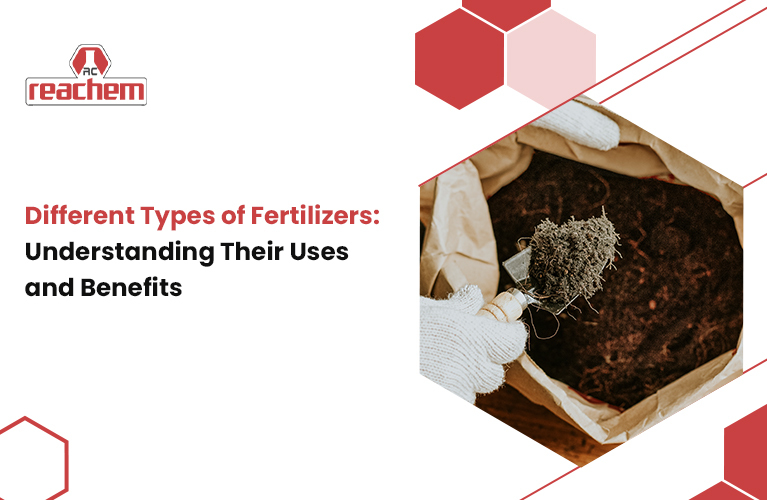wordpress-seo domain was triggered too early. This is usually an indicator for some code in the plugin or theme running too early. Translations should be loaded at the init action or later. Please see Debugging in WordPress for more information. (This message was added in version 6.7.0.) in /var/www/reachemchemicals.com/blog/wp-includes/functions.php on line 6121
Fertilizers play a crucial role in gardening and farming, helping plants grow strong and healthy. Whether you’re tending to a small backyard garden or managing large agricultural fields, choosing the right fertilizer can make a significant difference. Fertilizers provide essential nutrients that might be missing from the soil, ensuring plants get what they need to thrive. In this blog, we’ll walk you through the different types of fertilizers, their uses, and the benefits they offer. By understanding the various options available, you can make informed decisions and achieve the best results for your plants. Let’s dive into the world of fertilizers and explore how they can help your garden flourish.
Organic fertilizers originate from natural materials such as plants, animals, and minerals. They are a great choice for those looking to garden more eco-friendly.
Organic fertilizers improve soil health by enhancing its structure and increasing its ability to hold water and nutrients. They release nutrients slowly, ensuring long-term benefits for plants.
Inorganic fertilizers are manufactured using synthetic chemicals. They are designed to provide specific nutrients to plants quickly and efficiently.
Inorganic fertilizers offer quick results and are easy to apply. However, they need to be used carefully to avoid over-fertilization, which can harm plants and the environment.
Slow-release fertilizers are engineered to slowly release nutrients over an extended period. They provide a steady supply of nutrients to plants, reducing the need for frequent applications.
Slow-release fertilizers are convenient and reduce the risk of over-fertilization. They are ideal for busy gardeners who want to ensure their plants receive a consistent supply of nutrients.
Liquid fertilizers are dissolved in water and applied to plants through watering. They are quickly absorbed by plants, making them ideal for rapid nutrient delivery.
Liquid fertilizers are easy to apply and allow for precise nutrient management. They are particularly useful for container plants and seedlings that need immediate nutrient boosts.
Granular fertilizers are solid particles that are spread on the soil surface or mixed into the soil. They come in two main forms: quick-release and slow-release.
Granular fertilizers are easy to store and apply. They are a good choice for large areas and long-term feeding.
Foliar fertilizers are sprayed directly onto plant leaves. They allow plants to absorb nutrients quickly through their foliage.
Foliar fertilizers are especially useful for micronutrient deficiencies and during periods of rapid growth. They can be applied as a supplement to soil fertilization.
Speciality fertilizers are crafted for specific purposes or particular plants. They are tailored to meet the unique nutrient needs of certain crops or gardening situations.
Speciality fertilizers ensure that specific plants get the exact nutrients they need. They help achieve optimal growth and productivity for targeted gardening goals.
Natural fertilizers are made from naturally occurring materials and are often organic. They are environmentally friendly and sustainable.
Natural fertilizers enhance soil health and promote sustainable gardening practices. They are ideal for gardeners looking to minimize their environmental impact.
Understanding the different types of fertilizers and their uses is essential for successful gardening and farming. Each type of fertilizer offers unique benefits and can address specific plant needs. Whether you choose organic or inorganic, liquid or granular, the key is to use them correctly and responsibly. By selecting the right fertilizers and applying them appropriately, you can ensure your plants grow strong, healthy, and productive. Remember, the health of your soil directly impacts the health of your plants. So, always consider the long-term effects of your fertilization choices. Happy gardening!